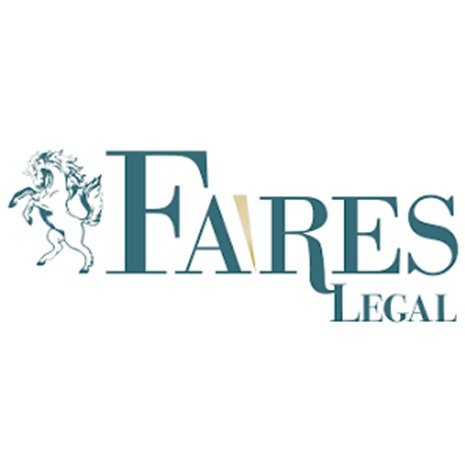Best International Trade Law Lawyers in Tripoli
Share your needs with us, get contacted by law firms.
Free. Takes 2 min.
List of the best lawyers in Tripoli, Libya
About International Trade Law in Tripoli, Libya
International Trade Law in Tripoli, Libya is an evolving field that addresses the rules and customs governing trade between countries. It involves numerous elements such as regulations on imports and exports, tariffs, trade agreements, and international trade disputes. Libya, being a key player in the Mediterranean, has a unique set of challenges and opportunities in international trade that require tailored legal interpretations and strategies. Understanding the local trade regulations is critical for businesses and individuals involved in cross-border transactions within this region.
Why You May Need a Lawyer
There are various situations where obtaining legal advice in International Trade Law is crucial in Tripoli, Libya:
- Engaging in complex cross-border transactions or export/import businesses that require an understanding of trade regulations and compliance.
- Resolving disputes arising out of international trade agreements or customs procedures.
- Navigating sanctions or restrictions imposed by international bodies or other countries that affect the trade landscape in Libya.
- Assisting in the negotiation and drafting of international trade contracts to protect your interests.
- Gaining insights on changes in trade policy or law amendments that may impact current or future business operations.
Local Laws Overview
Tripoli, Libya has a unique legal framework for international trade, which involves several key aspects:
- Custom Regulations: Government agencies in Libya regulate the flow of goods with stringent customs rules, tariffs, and duties.
- Trade Agreements: Libya is subject to various bilateral and multilateral trade agreements, which influence local trade laws.
- Sanctions and Restrictions: Specific international sanctions may impact Libya's trade with certain countries or in specific sectors.
- Export Control Laws: Legal provisions exist for controlling the export of certain goods, particularly strategic raw materials and technology.
- Regulatory Compliance: Businesses must comply with local regulations which may require obtaining licenses or clearances from authorities.
Frequently Asked Questions
What is International Trade Law?
International Trade Law encompasses rules and customs for handling trade between nations. It is a body of laws and agreements that govern the operations and relationship of countries engaged in trade.
How does Libya regulate imports and exports?
Libya regulates imports and exports through its Customs Authority, which enforces tariffs, inspects goods, and ensures compliance with trade agreements and local laws.
Are there any international sanctions affecting trade in Libya?
Yes, Libya is subject to international sanctions that can affect trade, especially in sectors such as energy. It is crucial for businesses to stay informed about these sanctions.
What should I do if I face a trade dispute in Libya?
If you encounter a trade dispute, it is advisable to seek legal assistance promptly. A lawyer can help you navigate the complexities of the dispute resolution process, whether through negotiation or litigation.
Do I need a license to export goods from Libya?
Depending on the type of goods and destination countries, you may need a specific export license, in compliance with Libya's export control laws.
Can I do business with any country under Libyan trade law?
While Libya engages in international trade, relationships with certain countries may be restricted due to political reasons or international diplomatic standings.
What are the tariff rates for imports into Libya?
Tariff rates in Libya vary based on the type of goods. It is essential to consult the latest tariff schedules or customs duty information before importing goods.
How do trade agreements affect business operations in Libya?
Trade agreements can provide preferential treatment, reduce barriers, and create opportunities or obligations in business operations. Understanding these agreements is crucial for strategic planning.
What are the penalties for violating trade laws in Libya?
Penalties may include fines, seizure of goods, or even criminal charges, depending on the severity of the violation. It is crucial to adhere to all trade regulations to avoid these consequences.
Where can I find updated information on Libyan trade laws?
Governmental publications, legal advice from professionals, and updates from relevant trade authorities are reliable sources for updated information on trade laws.
Additional Resources
For individuals seeking further information or guidance, the following resources may be helpful:
- The Libyan Ministry of Economy and Trade: Plays a crucial role in regulating trade policies and providing guidelines.
- Libyan Customs Authority: Offers information regarding import/export regulations, customs duties, and compliance requirements.
- Local Chambers of Commerce: Provide support and information for businesses engaging in international trade.
- Professional Legal Services: Law firms specializing in international trade law can offer guidance tailored to specific needs.
Next Steps
If you require legal assistance in the field of International Trade Law in Tripoli, Libya, consider the following steps:
- Conduct thorough research on law firms with expertise in international trade in the Libyan jurisdiction.
- Schedule consultations to discuss your specific needs and obtain preliminary advice.
- Ensure the lawyer you choose is familiar with both Libyan laws and international trade regulations pertinent to your case.
- Gather all relevant documents and information that might be required for consultations and legal proceedings.
By securing proper legal support, you can better navigate the complexities of International Trade Law in Tripoli, Libya.
Lawzana helps you find the best lawyers and law firms in Tripoli through a curated and pre-screened list of qualified legal professionals. Our platform offers rankings and detailed profiles of attorneys and law firms, allowing you to compare based on practice areas, including International Trade Law, experience, and client feedback.
Each profile includes a description of the firm's areas of practice, client reviews, team members and partners, year of establishment, spoken languages, office locations, contact information, social media presence, and any published articles or resources. Most firms on our platform speak English and are experienced in both local and international legal matters.
Get a quote from top-rated law firms in Tripoli, Libya — quickly, securely, and without unnecessary hassle.
Disclaimer:
The information provided on this page is for general informational purposes only and does not constitute legal advice. While we strive to ensure the accuracy and relevance of the content, legal information may change over time, and interpretations of the law can vary. You should always consult with a qualified legal professional for advice specific to your situation.
We disclaim all liability for actions taken or not taken based on the content of this page. If you believe any information is incorrect or outdated, please contact us, and we will review and update it where appropriate.











